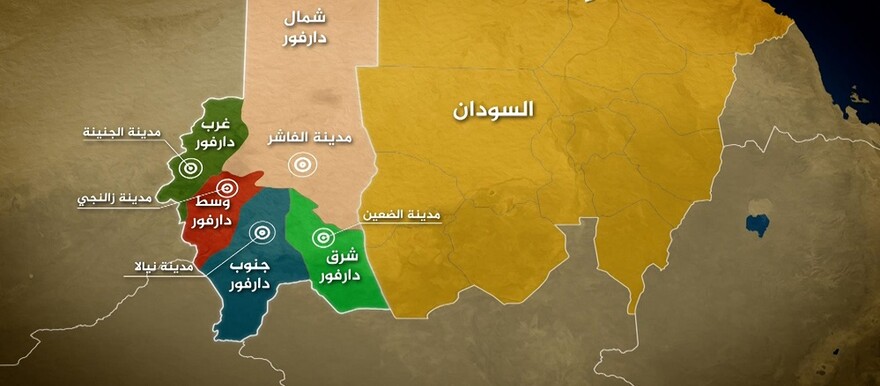Residents in Nyala town of Sudan’s South Darfur State are still facing significant challenges because of mobile network and internet breakdowns, more than six months since the conflict erupted. This disruption forces individuals to travel to El Daein to access essential banking services. Additionally, there are concerns about arbitrary arrests allegedly based on skin colour.
Speaking to Radio Tamazuj from Nyala town, Hajja Halima Ibrahim, a vendor in Al-Andalus Market, shared her struggle, noting that she hasn’t left her home in the Al-Wahda neighbourhood due to the intensity of clashes between the army and the Rapid Support Forces.
The high cost of travel is a major barrier for her. She explained, “The people who move from Nyala to a safe place own the cost of renting a transport vehicle, but I only own a shop that sells falafel, which only provides me with the cost of a barrel of water and a meal for one day.”
Halima’s financial situation became even more challenging after her son, who helped support the family, was killed 40 days ago, leaving her with three wives and seven children. This has doubled the cost of living, forcing her to sell food in the Andalusia market. However, her daily income doesn’t suffice for the family’s needs.
Lawyer Ahmed Abakar Mohammed, who shifted to trading after the courts ceased operation due to the conflict between the Sudanese army and the Rapid Support Forces, pointed out that Nyala residents are grappling with disrupted communication networks. He emphasized, “We’ve lost contact with our family and loved ones outside Nyala.”
Moreover, he highlighted the impact on people who relied on money transfer services through banking applications, stating, “There are even individuals who have lost their source of livelihood.”
Mohammed expressed his belief that there are households in Nyala currently facing extreme poverty and called on the two warring parties to cease hostilities while considering the plight of the population.
He also raised concerns about residents of Nyala being subjected to arrest and torture based on their skin colour, stating, “If the army finds a person with light skin colour, they are considered a member of the RSF. And if the RSF finds someone with dark skin colour, they are considered supporters of the army.” He pointed out that Nyala’s residents used to live in harmony regardless of skin colour or tribe.
Mohammed called on the Rapid Support Forces to address the issue of groups wearing their military uniforms and establishing bases in the midst of neighbourhoods to exploit and rob citizens. In some cases, when the Rapid Support Forces apprehend them, they discover that these individuals are actually thieves taking advantage of the RSF’s presence.
Trader Al-Hadi Abdel-Rahman explained how the war has severely impacted merchants from its onset, leading to the complete destruction of the market. He stated, “As the battles intensified and shells fell on residential neighbourhoods, we were compelled to relocate from the Al-Wadi neighbourhood to somewhat safer southern neighbourhoods.”
He continued, “We have been without communication networks, water, and electricity services for six months, and we now rely on the news broadcasts of Radio Tamazuj and Dabanga. We are immensely grateful to these two radio stations for keeping us informed.”




